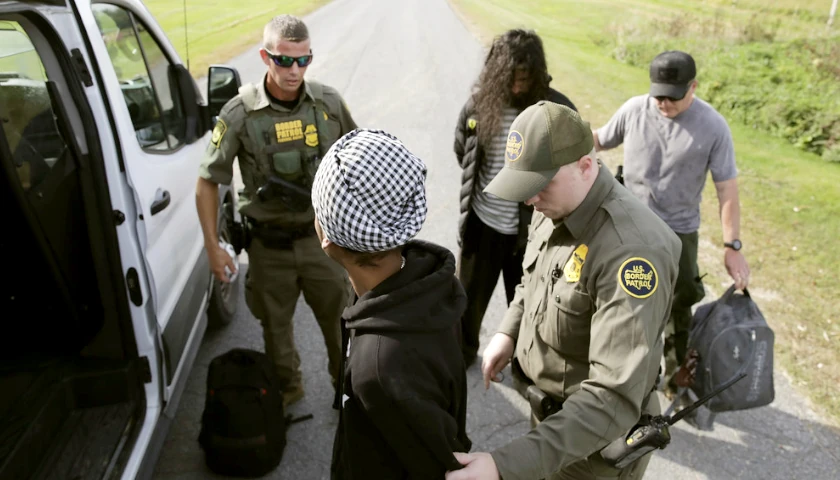by Morgan Sweeney
Virginia Gov. Glenn Youngkin gathered with legislators Wednesday for a ceremonial signing of bills passed unanimously by the General Assembly designed to prevent and counter child exploitation in the commonwealth.
Senate Bill 731, patroned by Sen. Tara Durant, R-Fredericksburg, criminalizes the use of artificially generated depictions of children in child pornography. Durant said the bill modernizes Virginia law so it’s no longer trailing criminal activity.
“This legislation brings our child pornography code into the 21st century by closing a loophole that criminals have been able to exploit using digital technology and artificial intelligence. On July 1 we will be able to more clearly prosecute these heinous criminal acts,” Durant said in a statement.
Del. Michael Webert, R-Fauquier, sponsored House Bill 1427, a bill which allows courts to lengthen the probationary period of defendants convicted of sexual battery or abuse of 13-14-year-olds to a maximum of three years. Currently, as these crimes are misdemeanors under Virginia law, courts can assign probation for a maximum of one year.
Courts can assign probation as an alternative form of punishment to time in jail or prison, and the conditions of probation can be very strict and specific to the crime. If an offender violates the conditions of his probation, it could result in time behind bars or a further extension of probation. But when an offender’s probation is finished, he can return to doing things he wasn’t allowed to do during probation – like inviting a child into his car for a ride home. During probation, such an action could result in jail time. Outside of probation, the defendant must be convicted of a crime again to be subject to any kind of criminal penalty.
“HB1427 directly works to ensure that those convicted of heinous crimes against children will not be able to so easily reoffend,” Webert said in a statement.
Finally, SB 201 and HB 1388, companion bills sponsored by Sen. Danny Diggs, R-York, and Del. Bonita Anthony, D-Norfolk, create an alert program that can be used at the local, regional or statewide level to help locate missing children and youth. For law enforcement to deploy an AMBER Alert, there must be “reason to believe the child is in imminent danger”; police can use the Virginia Critical Operation for a Disappeared Child Initiative Alert Program, or CODI Alert, a little more freely to locate a child earlier on.
“We want to make sure that we have additional resources put in place to reunite kids and their families as quickly as possible. The CODI alert is a tool that can be deployed to help find children who may have gotten lost or are known not to be in immediate danger,” Diggs said in a statement. “This new alert will be a valuable tool for law enforcement and parents.”
“This legislation marks a pivotal stride in protecting endangered children, especially our Black and Brown youth, who have historically been overlooked by the stringent criteria of the AMBER Alert system. Collaborating bipartisanly with my colleagues, we’ve prioritized the safety of all children in our Commonwealth,” Anthony said in a statement.
The governor lauded the bipartisan legislation, underscoring the need to protect children.
“Every one of these bills will make a difference. Every one of these bills will protect children…I think we just need to remind ourselves that protecting children is not just a policy. It is a moral obligation that each and every one of us collectively must embrace and therefore the mere fact that these bills were passed on a unanimous basis reinforces my incredible faith in Virginia that we will act to serve Virginians,” Youngkin told the crowd before signing the legislation.
– – –
Morgan Sweeney is a staff writer covering Virginia and Maryland for The Center Square. Morgan was an active member of the journalism program as an undergraduate at Hillsdale College and previously freelanced for The Center Square.
Photo “Glenn Youngkin” by Gage Skidmore. CC BY-SA 2.0.




